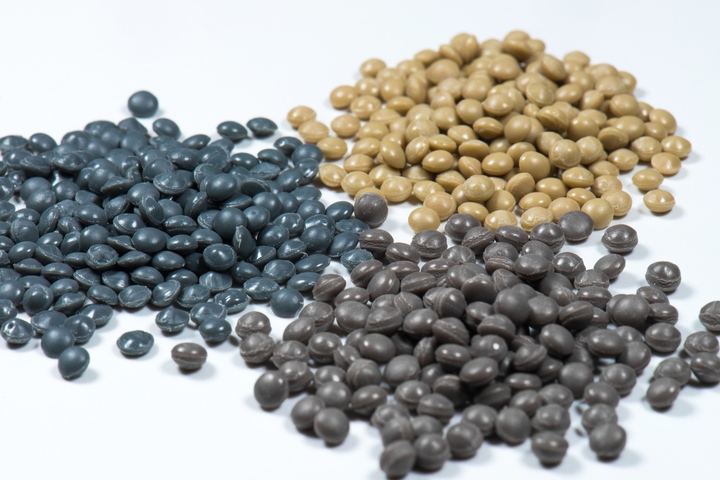PLASTICS AND ENVIRONMENT
EU Parliament, Council provisionally agree on pellet loss regulations / “Building on plastics industry's work”
— By Dede Williams —
The Council of the European Union (the Council) – the EU government segment representing member states – and the European Parliament have provisionally agreed on a regulation aimed at preventing the loss of plastic pellets in transport across all supply routes, on land and at sea.
The Council of the European Union (the Council) – the EU government segment representing member states – and the European Parliament have provisionally agreed on a regulation aimed at preventing the loss of plastic pellets in transport across all supply routes, on land and at sea.
 A tentative agreement to stop the loss of plastic pellets has been reached by the European Parliament and the Council of the EU (Photo: PantherMedia/xxlphoto) |
In a subsequent step, the agreement will need to be endorsed by both the Council and the parliament and undergo a legal and linguistic review before taking hold two years after publication in the Official Journal of the EU.
According to the legislation originally drafted by the European Commission, entities that handle pellets are to be held responsible in future for all spillage and losses and required to take immediate action to deal with the consequences.
Related: Industry initiative Operation Clean Sweep expands presence to 65 countries
Under a risk management plan, each installation will be required to spell out binding rules for packaging, loading, unloading, and staff training, as well as listing specifications of the equipment required.
Compliance requirements to vary
Compliance requirements will vary, depending on certain conditions. Entities that regularly handle more than 1,500 t/y of pellets will have to obtain certification through an independent third party, while smaller companies transporting this same volume can get by with a one-time certification, to be completed within five years of the rules taking effect. For those handling less than 1,500 t/y, a self-declaration of conformity will suffice.
To facilitate coordination in the shipping sector, which accounted for 38% of EU pellet transports in 2022, the commission has agreed to extend the compliance deadline by one year. Small firms will have two years to comply.
Related: Plastics Europe, EuPC launch programme to control pellet loss
EU estimates suggest that roughly 52,000 t to 185,000 t of pellets were lost to the environment in 2019. The building blocks for plastic products account for the largest unintentional releases of microplastics, behind paints and automotive tyres. The Council has said it expects the new regulations to decrease pellet losses by up to 74%.
To facilitate coordination in the shipping sector, which accounted for 38% of EU pellet transports in 2022, the commission has agreed to extend the compliance deadline by one year. Small firms will have two years to comply.
Related: Plastics Europe, EuPC launch programme to control pellet loss
EU estimates suggest that roughly 52,000 t to 185,000 t of pellets were lost to the environment in 2019. The building blocks for plastic products account for the largest unintentional releases of microplastics, behind paints and automotive tyres. The Council has said it expects the new regulations to decrease pellet losses by up to 74%.
Building on the plastics industry’s model
Plastics Europe (Brussels; www.plasticseurope.org) called the provisional agreement a “decisive step” towards protecting the environment and creating a more sustainable economy for plastics. The trade group representing polymer producers noted that the legislation builds on the industry’s existing programmes such as Operation Clean Sweep, which is active across six continents and involves some 5,000 member companies.
“For decades, the Finnish Plastics Industry Federation (FIPIF, Helsinki; www.plastics.fi) has been guiding domestic operators in similar work”, Vesa Kärhä, the association’s managing director commented.
“For decades, the Finnish Plastics Industry Federation (FIPIF, Helsinki; www.plastics.fi) has been guiding domestic operators in similar work”, Vesa Kärhä, the association’s managing director commented.
16.04.2025 Plasteurope.com [257791-0]
Published on 16.04.2025
